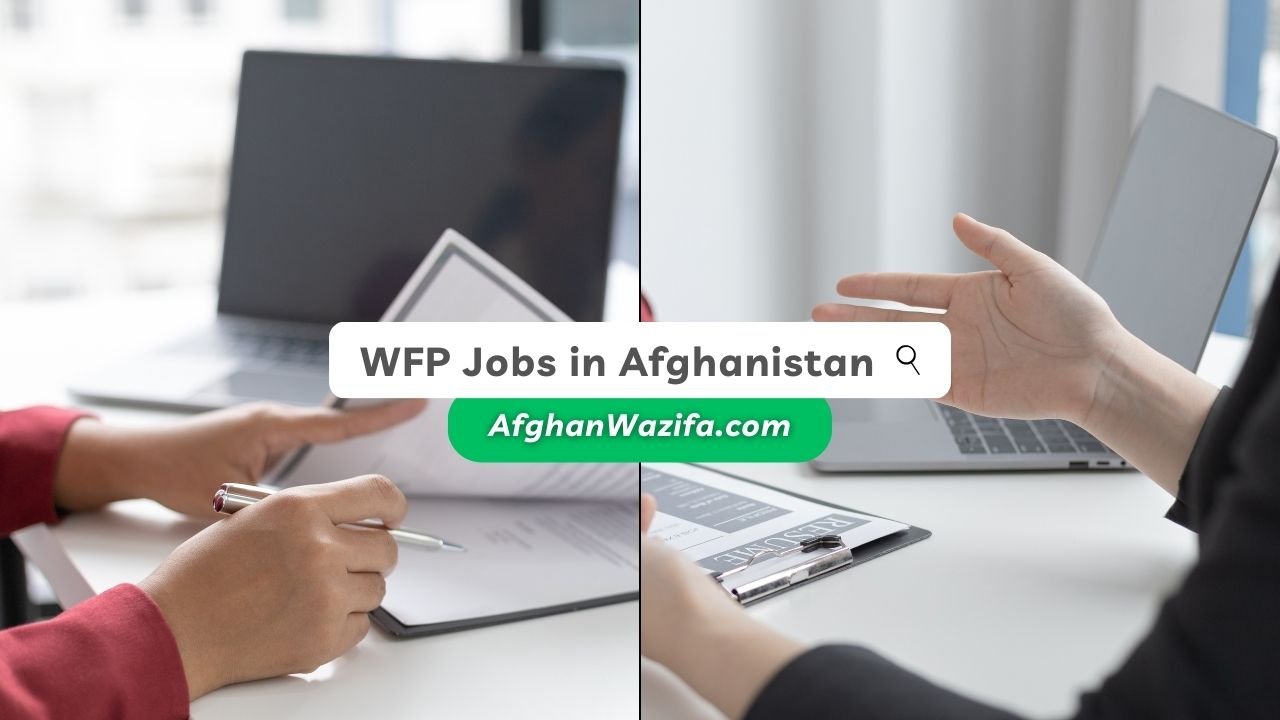The World Food Programme (WFP) is the largest humanitarian organization that aims to provide food assistance to millions of people worldwide. In Afghanistan, where poverty, conflict, and natural disasters have caused widespread hunger, WFP has been providing food assistance and support to millions of vulnerable people for over 60 years. This article will explore the various job opportunities available at WFP in Afghanistan, the challenges faced by the organization, and the impact of its work on the lives of Afghans.
Introduction to WFP in Afghanistan
WFP has been working in Afghanistan since the 1960s, providing food assistance to millions of Afghans affected by conflict, natural disasters, and poverty. The organization operates in all 34 provinces of Afghanistan and has over 1,000 staff members working in various fields.
WFP Job Opportunities in Afghanistan
WFP offers various job opportunities in Afghanistan, ranging from program officers, logistics officers, nutritionists, and drivers to IT specialists, finance officers, and communication officers. The organization seeks talented and dedicated professionals who are committed to making a difference in the lives of vulnerable Afghans. WFP jobs offer competitive salaries, opportunities for career advancement, and the chance to work in a diverse and dynamic environment.
WFP Program Officers
Program officers are responsible for designing, implementing, and monitoring food assistance programs in Afghanistan. They work closely with local communities, government officials, and other humanitarian organizations to ensure that WFP’s programs are effective and meet the needs of the most vulnerable people. Program officers must have strong analytical skills, excellent communication skills, and the ability to work under pressure.
Read Also: Landing Your Dream IT Job in Kabul
WFP Logistics Officers
Logistics officers are responsible for managing the transport, storage, and distribution of food assistance in Afghanistan. They ensure that WFP’s warehouses are well-stocked, that food assistance is transported safely and efficiently, and that distribution is carried out in a timely and transparent manner. Logistics officers must have excellent organizational skills, attention to detail, and the ability to work in a fast-paced environment.
WFP Nutritionists
Nutritionists are responsible for ensuring that WFP’s food assistance programs in Afghanistan meet the nutritional needs of vulnerable people, especially children and pregnant women. They design and implement nutrition programs, provide technical support to local health workers, and conduct research on nutrition-related issues. Nutritionists must have a degree in nutrition, public health, or a related field, as well as experience working in a humanitarian context.
WFP Drivers
Drivers are responsible for transporting food assistance and staff members to various locations in Afghanistan. They must have a valid driver’s license, knowledge of local roads and regulations, and the ability to drive in challenging terrain and weather conditions. Drivers must also have excellent communication and customer service skills, as they often interact with local communities during transport.
Challenges Faced by WFP in Afghanistan
WFP faces various challenges in Afghanistan, including security concerns, access to remote areas, and funding shortages. The security situation in Afghanistan is volatile, with frequent attacks on humanitarian workers and convoys. This makes it difficult for WFP to reach the most vulnerable people in some areas. Additionally, many remote areas in Afghanistan are difficult to access due to poor road infrastructure and challenging terrain. Finally, WFP relies on donor funding to operate in Afghanistan, and funding shortages can limit the organization’s ability to provide food assistance to those who need it most.
Impact of WFP’s Work in Afghanistan
Despite the challenges, WFP’s work has had a significant impact on the lives of Afghans. The organization provides food assistance to millions of vulnerable people every year, helping to reduce hunger and malnutrition. WFP also supports the livelihoods of small-scale farmers and provides nutrition education and support to mothers and
children. By supporting local markets, WFP’s programs also stimulate economic growth and help build resilience in communities affected by conflict and natural disasters.
In addition to providing food assistance, WFP has played a crucial role in responding to emergencies in Afghanistan. In 2021, when conflict and drought caused widespread displacement and food insecurity, WFP provided emergency food assistance to over 3.5 million people in need. WFP’s work in Afghanistan is not only saving lives but also providing hope for a better future.
Read Also: Discover UN Jobs Requirements in Afghanistan
Conclusion
Working for the World Food Programme in Afghanistan is a noble and rewarding experience. It offers individuals the chance to make a difference in the lives of millions of vulnerable Afghans and provides opportunities for personal and professional growth. Despite the challenges faced by WFP in Afghanistan, the organization’s work has had a significant impact on reducing hunger and malnutrition in the country.
FAQs
- How can I apply for a job at WFP in Afghanistan? You can visit the WFP career website and search for job opportunities in Afghanistan. You can then submit your application online.
- What qualifications do I need to work for WFP in Afghanistan? The qualifications required for each job at WFP in Afghanistan vary depending on the position. However, a relevant degree and work experience in a related field are usually required.
- How safe is it to work for WFP in Afghanistan? WFP takes security very seriously and has strict security protocols in place to protect its staff members. However, the security situation in Afghanistan can be volatile, and staff members must take precautions to stay safe.
- What is the work culture like at WFP in Afghanistan? WFP promotes a diverse and inclusive work environment and encourages its staff members to collaborate and share ideas. The work culture is fast-paced and challenging, but also rewarding and fulfilling.
- How can I support WFP’s work in Afghanistan? You can support WFP’s work in Afghanistan by making a donation to the organization, advocating for humanitarian issues, and spreading awareness about the challenges faced by vulnerable Afghans.






